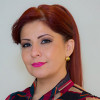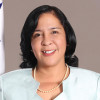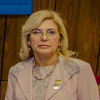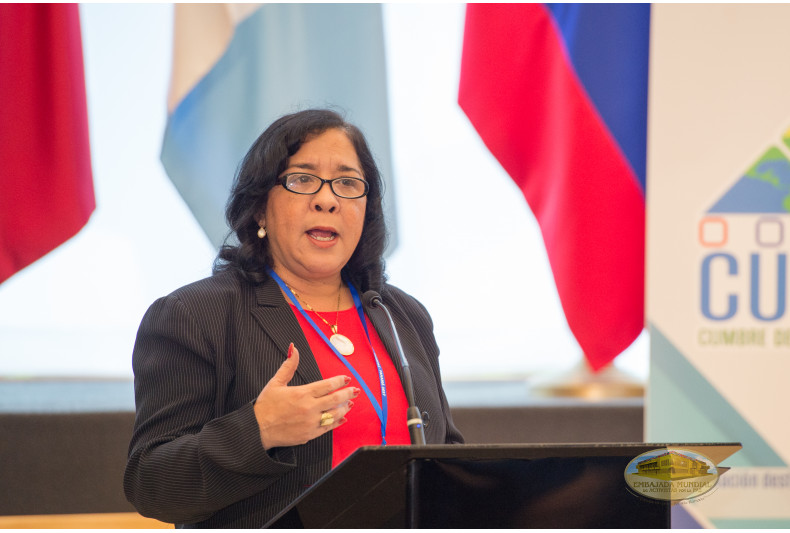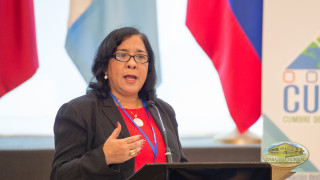Changing the educational paradigm: CUMIPAZ works for the integral formation
See GalleryEducational Session was installed in the Parlatino
Ministers, Vice Ministers and Secretaries of Education, academic authorities, professors and teachers from different countries met at the headquarters of the Latin American Parliament in Panama City to participate in the Educational Session of the Integration for Peace Summit, CUMIPAZ 2017.
The event was developed through working tables for the presentation of proposals focused on the integral formation of the human being, an educational system based on values and principles, with a holistic approach.
The opening ceremony of the session was attended by the honorable Minister of Education of the Republic of Panama, Marcela Paredes; the secretary of the International University Alliance for Peace (ALIUP), Hermelinda Alvarenga; and the general director general of the Global Embassy of Activists for Peace (GEAP), Gabriela Lara.
The Executive President of GEAP and Director of CUMIPAZ, William Soto, addressed a message to those present, in which the purpose of the work in the educational field was presented.
Educating the soul is fundamental.
"Education must first integrally form man so that the human being not only gives application to the knowledge acquired but a sense of purpose," said Soto.
He said that education in many cases has concentrated on forming the intellect, mind or spirit, and to knowing, molding and strengthening the body; said that the most important part in the educational process has been overlooked: educating the soul or heart.
He also explained that education for peace is based on respect for human dignity, fundamental rights and the need to protect Mother Earth.
"The importance of a paradigm shift in education and the need to consolidate a comprehensive education in the heart, for the peace and happiness of the human being," emphasized William Soto.
Gabriela Lara, general director of the GEAP, spoke on the right to integral education, in this regard said:
"We consider that the right to integral education is fundamental, it is a very important premise, because it not only promotes intellectual development or social development; integral education actually seeks to go beyond, to form beings that are more human, integral and happy people. "
Lara said that the integral education should be of interest to all Governments and be a priority in the National Development Plan; in addition, have the support of all the actors involved in the education process: the individual, family, teachers and educational entities
The educator plays an essential role
The ministry of Education, Marcela Paredes, of Panama said in her intervention, that education plays a fundamental role in all attempts to promote peace. She added that it is necessary to strengthen efforts collectively to achieve the true establishment of a culture of peace.
Regarding the subject, he mentioned that the educator can play an essential role; in first place, with his example, attitude and performance in the classroom, and with tools that allow him to establish strategies so that the promotion of the culture of peace is a transversal axis, regardless of the educational theme. Paredes said:
"It is necessary to incorporate this vision into the initial formation of our educators, and also as a permanent element of their ongoing formation, because this has to be a sustained effort, if we really want to achieve the goals of living in societies more peaceful.”
Educate in values: Chair for Peace
Hermelinda Alvarenga, secretary of the ALUP, also vice rector of Nihon Gakko University, said:
"Globalization and the internationalization of higher education obliges us and asks us to work as a team; being education the only instrument that leads to educate in the academic, but above all the importance of education in values.
The academic spoke about the Chair for Peace, a project that was promoted at CUMIPAZ 2016-Paraguay, and presented at the present edition of the Summit. Alvarenga indicated that this chair must be transversal in all the educational areas; from the initial level, basic school, middle and upper level.


